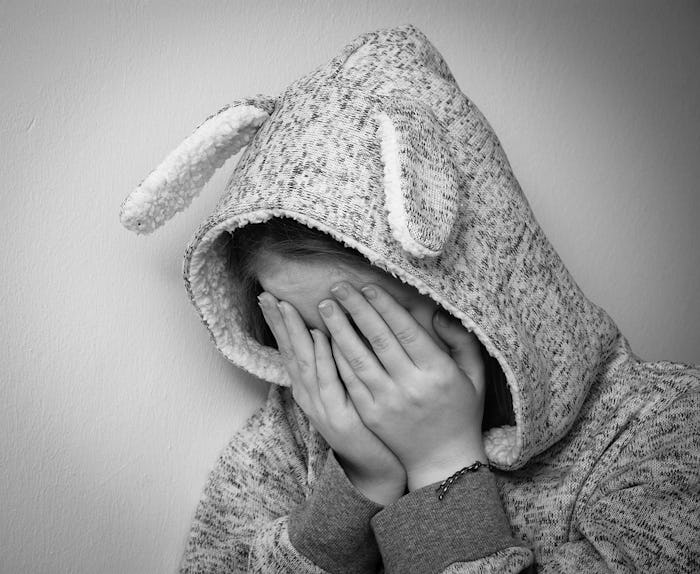It's so tempting, isn't it? When your sweet little angel turns into The Other, and you are trying to be patient but you just want to go bananas and tell them to calm the fig down. We've all been there... we all know what it's like. That momentary loss of your temper can feel sort of cathartic; for a minute. But what are the long term effects? Is harsh parenting good for your kids? No big shocker here; a new study says probably not.
A study conducted at the University of Pittsburgh's Developmental Psychology department found that typical "harsh" styles of disciplining children, which lead study author Dr. Rochelle Hentges defined as "verbal and physical aggression", can do more harm than good. Around 1500 students who were middle school and high school-aged were part of the study. The children whose parents used tactics like, "yelling at your kids, shoving them, punching them, threatening physical harm, things like that" tended to rely far more heavily on their peer group for guidance. They also reported that this sort of harsh behavior left them feeling rejected by their parents, making them feel as though they were not loved. Which had them looking for love and acceptance among their peer group, Dr. Hentges told CNN.
When you have this type of parenting, from a very early age you are basically kind of getting this message that you are not loved, and you're getting this rejection message, so it would make sense to try and find that acceptance elsewhere. So that's kind of why you go toward these peers and you're trying to get validation from them, and if that means that you're going to engage in behaviors that maybe you wouldn't do normally just to get that validation, then you're going to do that.
The study, which was published in the periodical Child Development, noted that aggressive parenting tactics affected boys and girls differently in the way they might act out. Dr. Hentges noted:
What we found is boys are more likely to engage in delinquent behavior, and girls are more likely to engage in early and risky sexual behavior.
Not only do children raised with "harsh" parenting tactics tend to look to their peers for solace, but they also struggle to plan for the future, particularly in their academic careers. Rather than planning for their long term future, they chose instant gratification, according to Dr. Hentges, who also pointed out that leaving school completely was not terribly uncommon.
If you're in this harsh or unstable environment, you're kind of set up to look for immediate rewards instead of focusing on the long-term outcomes.
So how do you avoid using harsh parenting on your children? Try to discipline with an eye to the future, rather than the immediate. Sure, we're all human and it's easy enough to lose our tempers. But the detrimental side effects that could hinder your kids by being too harsh are far too serious to be taken lightly. Sometimes we need to take a breath, leave the room, or (my favorite trick from years of parenting teenagers), tell them that you will discuss things in the morning. It's amazing what a good night's sleep can do for you both.
